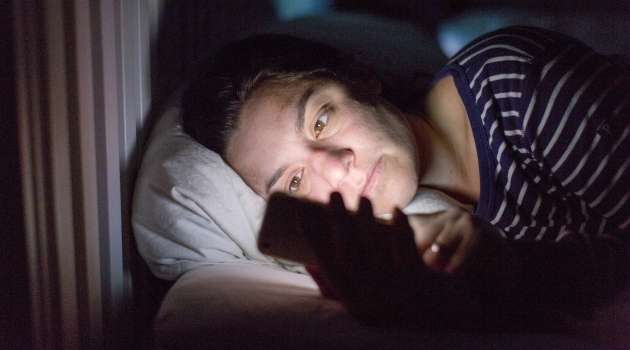The battle for the bedroom

More and more of us are wishing each other goodnight by mobile phone. Unfortunately this means that we are sleeping increasingly badly. Now sleep researchers in Uppsala are creating an app to make us disconnect when it's time to unwind.
The number of mobile-free zones is shrinking rapidly in these days of constant connection. In the UK, more than one in two people claim to have nomophobia—a fear of not being accessible on their mobile telephone—and our rapidly accelerating technology use means that all of the hours in the day are no longer enough. Many people are now continuing their surfing in bed; something which is already producing noticeable results.
'Our deteriorating sleep habits are taking on almost epidemiological dimensions. We currently sleep on average an hour less per day than people did 20 years ago.' In a study of teenagers in Uppsala county, almost one in three state that they have regular sleep problems. 'We know that lack of sleep leads to a number of risks, and it is clear that something must be done', says Christian Benedict, a sleep researcher at Uppsala University's Department of Neuroscience.
Research at Uppsala University shows how mobile telephones, tablets and computers emit a blue light on a frequency similar to daylight, and that evening use reduces our production of the sleep hormone melatonin. It remains for science to map exactly how this affects our sleep, but already the fact that 29% of Swedes take their mobile phones into the bedroom with them—many young people sleep with theirs under the pillow—suggests that without much consideration we are exposing ourselves to a number of serious dangers.
'New results show how even a single night with a lack of sleep can start serious physical reactions. Among other things, the body's basal energy consumption reduces and we begin to store extra energy. Longer periods of sleeplessness can affect the barrier that protects the brain from hazardous substances, we risk losing nerve cells and in the long term increasing the risk of being affected by Alzheimer's disease. Overall, this confirms the importance of regular sleep habits for keeping body and brain healthy', says Christian Benedict.
Lost sleep also negatively affects our ability to perform. With financial support from AFA Försäkring, Christian Benedict is now creating an app to make us disconnect when it's time to unwind. In the initial phase, working adults are the target group, but the ambition is to ultimately also provide support to children and young people; the group that now most uses screen-based technology, and in all probability the most emotionally affected.
'I want to help people to increase their knowledge about the times of the day when they should avoid using their appliances. An app provides fantastic opportunities to provide large numbers of people with personally designed support at the same time that the research can collect anonymised data about sleep habits and well-being, which can ultimately help us all to sleep, feel and perform better', says Christian Benedict.
Support for better sleep
Christian Benedict is developing a new app to support those who want to improve their sleeping habits. It is expected to be ready in 2015/2016. He is also researching bio-markers which can identify those people who run the greatest risk as a result of lack of sleep.
















